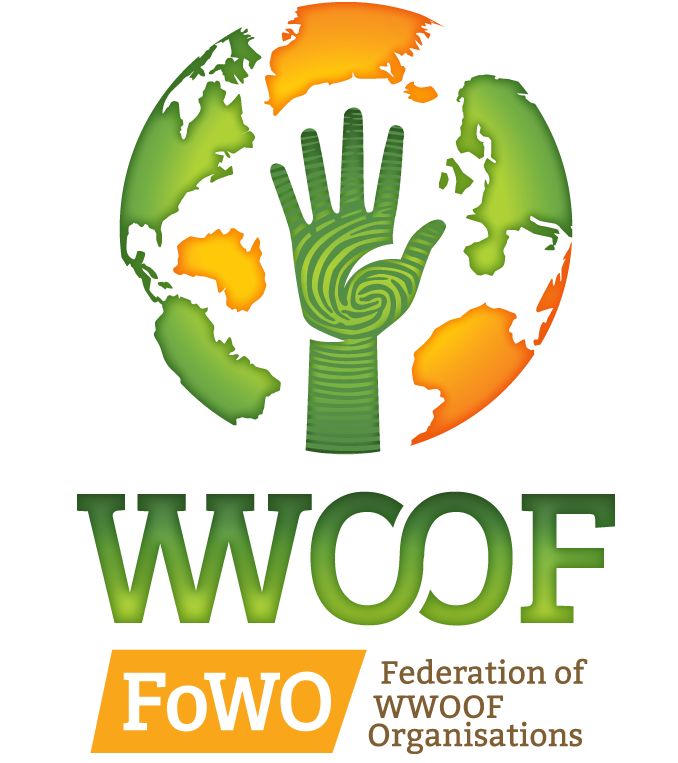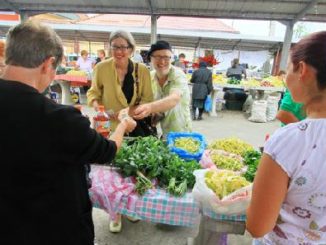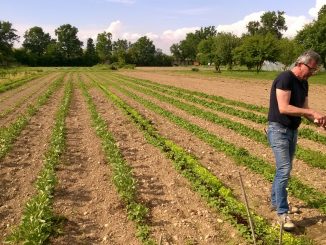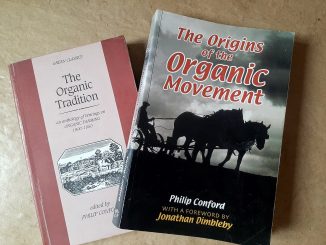 World Wide Opportunities on Organic Farms (WWOOF) is a global movement of people who want to teach, share and learn ways of practicing organic agriculture from one another in a direct manner. But, it’s much more than that!
World Wide Opportunities on Organic Farms (WWOOF) is a global movement of people who want to teach, share and learn ways of practicing organic agriculture from one another in a direct manner. But, it’s much more than that!
A cultural exchange occurs between farm owners (Hosts) and their volunteers (WWOOFers). WWOOFers can be from anywhere: local, regional or international areas. By living and working together on the same farm, both exchange different customs and ideas about the world and this causes people to open their minds more and to consider new things in a very “organic” way.
WWOOFers gain an appreciation of the beauty of different landscapes and learn how geography, climate, policies and other factors affect the lifestyles and growing methods of each farmer and their family or collective. Hosts gain much needed help in maintaining a viable farm that serves their desired food and agricultural model and WWOOFers are offered free accommodation and food. No money exchanges hands due to the mutually beneficial nature of the exchange. It’s simply a beautiful concept!
In 1971, WWOOFing started in England. It originally meant “Working Weekends on Organic Farms.” Like most great things, it began and grew out of a need. People in London and elsewhere did not have the means or the opportunity to access land nor get involved in organic agriculture. This small program became exceedingly popular and in time it ballooned into a national and international movement thanks to people’s creativity and hunger for non-toxic food that is made using an agroecological approach.
In 2008, this incredible movement reached Romania. WWOOF Romania began with only 3 farms and now has over 30. In addition, its volunteer base is growing each year for many reasons. First, Romania is a very beautiful country. Surely, that is reason enough. A mix of people (Romanians, Hungarians, Saxons, and Roma) share their food and cultural traditions with volunteers which offers visitors a truly unique experience. International volunteers especially indicate that they come here to get to know how villagers interact and live. The slower pace and less technologically-modern nature of daily life really attracts WWOOFers from Romania and abroad. More traditional hand tools and techniques are used here than in other parts of Europe. Here, volunteers feel more connected to the long traditions of farmers who have lived before and those still continuing their legacy today. So its no wonder that hundreds of volunteers have already come and enjoyed their experiences.
Despite these positives, Romania is also a place that is still struggling to adhere to the European Union’s policies and idea of Civil Society which argues for a more sustainable development of the country. Due to its self-sufficient and diverse agriculture practiced by a multitude of family farms, Romania was considered the breadbasket of Europe in the 19th Century. Nowadays, a staggering 70 percent of the food is imported, generating food insecurity by shifting from local producers to agribusiness.
Calin, a Romanian WWOOFer and activist, recently stated“we must fight back against seed corporations that produce unhealthy food. One way to do that is by getting directly involved in growing food ourselves.”
Romania is the second largest agricultural country in Central-Eastern Europe and contains approximately 50% of the peasant population living in the European Union – nearly 4 million. Romania represents a mix of modern developments and traditional practices, most notably in subsistence agriculture, which is still used by most of the rural population. This country still holds a great amount of biodiversity which provides the possibility of a bright future regarding small-scale farming in Europe. Hosts and WWOOFers know that traditional communities and their agricultural customs need to be preserved and want to reach this goal. By working together they can prevent what has happened in other European countries: extremely or very limited access to land, the loss of the material resources to grow food and environmental degradation including soil depletion.
About a year ago, a Transylvanian WWOOF Host told me “I only have the help of my family here at the farm. Without the help of volunteers, our lives would be much tougher and we would work much more. Their work is really invaluable and I am very thankful.”
WWOOF also connects volunteers with growers who are both sometimes linked to other organisations who are trying to influence policies related to producer and consumer issues. WWOOF does not involve itself in politics or advocacy work but sometimes the exposure to these issues is beneficial for WWOOFers and Hosts alike.
WWOOF grows more and more each year, over 50 organizations currently exist. There are a number of other National WWOOF Organizations and WWOOF Independent Farms (WWOOF Independents) in Eastern Europe. All WWOOF groups and farms have their own way of organizing themselves and have autonomy over decision-making and what is the best way forward to grow the organic agriculture movement where they live.
Eco Ruralis, the coordinator of WWOOF Romania, actively supports a movement of young farmers that will preserve traditional farming practices and assert their control over food production and land rights – some of the basic tenets of food sovereignty. This vision will be realized if WWOOF and the overall food sovereignty movement gain more and more momentum like they are now.
Written by: Derek Freitas, Food Sovereignty Campaigner at Eco Ruralis.
For more:
ARC2020’s new agroecology initiative
Recent posts by Attila Szocs and Eco Ruralis team
- Pioneer GM Maize 1507: A Case History
- Grown men working 12 hours a day for a loaf of bread
- Romanian alternative food networks: growing through the cracks
- Victory for Romanian peasants over gold mining corporation
- Food Sovereignty: an idea whose time has come.
- Public Land Agencies: French SAFER model safe for Romania?
- Elections 2014 in Romania
- New open source database uncovers land grabbers
- Organic Participatory Guarantee Systems – a Brazilian model.
- Let there be biodiversity! The importance of sharing free seeds




